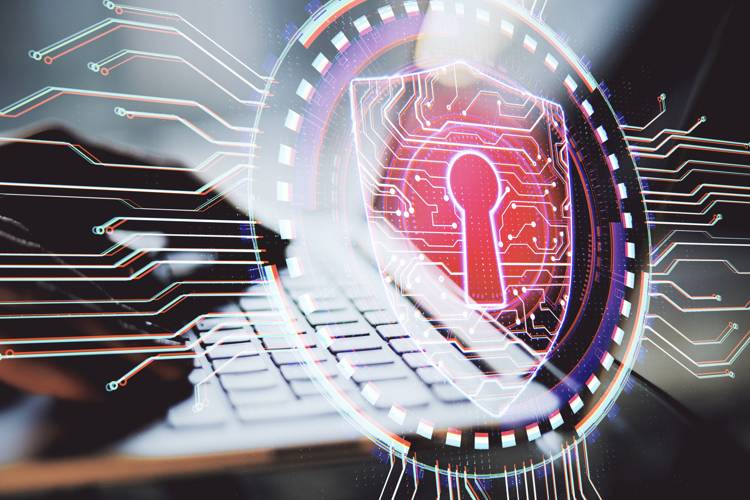-
Data Security Tips for Small Businesses
Are you worried about cybersecurity for your small business?
The dangers of hacking, phishing, viruses, and other cyber-attacks are an ever-present threat in the modern business world. It’s a particularly large concern for CFOs and finance departments since they’re responsible for the company’s money and associated data, including information about customers and suppliers. For small businesses, where there might not be a separate CFO or finance department, the burden of cybersecurity falls on the owner, IT, and finance people.
If your small business hasn’t been hit by any cybercrimes yet, you might think that it’s not likely to be a target. It seems like bigger corporations or government organizations would be the ones criminals go after. But attackers often see small businesses as an ideal target—they have more money and sensitive data than an individual but less security than larger companies.
Small businesses are at risk, but there are things you can do to increase your company’s cybersecurity. You can make financial business processes (e.g. accounts payable, expense reporting) and data more secure by following cybersecurity best practices and using secure business software.

Security Statistics
Cybersecurity is a very real concern for today’s small businesses. Phishing schemes, data breaches, malware, and a host of other cybercrimes can all affect small businesses. Scammers and hackers target small businesses more often than you might think, and the cost of cybercrime is high.
- In 2015, data from Symantec’s 2016 Internet Security Threat Report revealed that 43% of phishing campaigns selected small businesses as their target.
- The Verizon Business 2020 Data Breach Investigations Report showed that small businesses were the target of 28% of data breaches for that year.
- IBM and the Ponemon Institute track costs associated with cybercrimes. There was a 26.8% increase in the costs to small businesses between 2020 and 2021, from $2.35 million to $2.98 million.
Despite the high costs and high risks, SmallBizTrends reports that only about 14% of small businesses consider cybersecurity one of the top three risks to their companies. Perhaps seeing it as a lower priority explains why 45% of small businesses don’t think they’re prepared for cyberattacks.
Top Security Tips
Statistics and surveys showing the prevalence and high cost of cyberattacks highlight the need for small businesses to secure their data. But how do you do that?
The FCC summarizes the precautions you can take in “10 Cyber Security Tips for Small Business.” These tips include:
- Enforce basic security principles (e.g. requiring secure passwords, describing how to handle customer information) and train employees to follow those rules.
- Keep software updated and make sure you have good anti-virus software running on all computers.
- Use a firewall on company computers and require employees to use a firewall if they’re working from home.
- Mobile devices can be particularly vulnerable to cyberattacks. If employees use cell phones, tablets, etc. for work, require them to follow security protocols.
- Make sure you’re backing up all important documents, files, and digital data at least once a week.
- Though a lot of attacks are digital, you should still set up security around physical devices as well, such as locking up laptops when they aren’t in use.
- Secure, encrypt, and hide your company’s WiFi network.
- Use secure payment systems.
- Limit employees’ permissions so they can only access the systems they use, rather than every part of the business. No one person should have access to everything, especially not administrative access.
- Consider setting up multi-factor authentication not only on your systems, but also for any accounts your company has with other companies.
Many of these steps—such as securing WiFi and setting up a security policy for employees to follow—are things that you can do fairly easily on your own. Others—like making sure all your software systems are secure, backing up data, and encrypting payment systems—are much easier with some help.

How Automation Software Can Help
Unless your small business specializes in data security, you’ll probably find that it’s easier to have someone else handle many aspects of data security rather than trying to do it all in-house. Let’s consider, for example, accounts payable.
If you’re handling AP manually or using a software system that’s installed on your computers, then you’re responsible for all aspects of data security. You have to keep the software up to date, make backups of all the files, decide who can access what information, and establish secure payment systems.
In contrast, if you use automated Software-as-a-Service (SaaS) business processing software, your software supplier is going to manage a lot of these tasks for you. They handle keeping the software system up to date, including updates for data security. Since they specialize in business software, they have the resources needed to provide quality cybersecurity.
SaaS programs make it easy to set up different access permissions for different employees. You can also customize the software to automatically enforce company policies. For accounts payable, you can set the software to automatically approve certain invoices and send approval reminders for others. You can even outsource payments with Payments-as-a-Service (PaaS) software to establish segregation of duties and ensure the payments system is secure.
NextProcess For Small Businesses
One of the perks of NextProcess software is that it scales to your company’s needs, including transactional pricing that means you only pay for what you use. You can get the same cybersecurity benefits from our software that large corporations do at a price tag that matches the size of your company.
Our software includes state-of-the-art cybersecurity features to keep your data safe. It also supports your efforts to improve security with features that let you set strong passwords, choose which employees can access which features, and set up secure payment processing. To learn more, contact NextProcess. We’ll be happy to answer your questions and set up a free demo so you can see exactly how our software could work in your company.